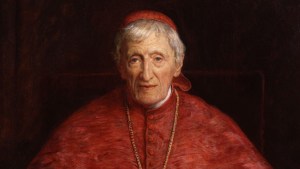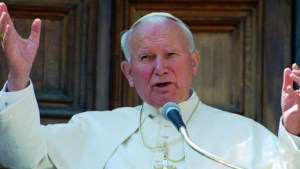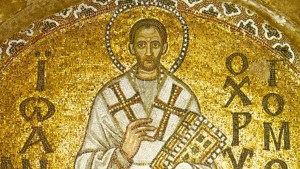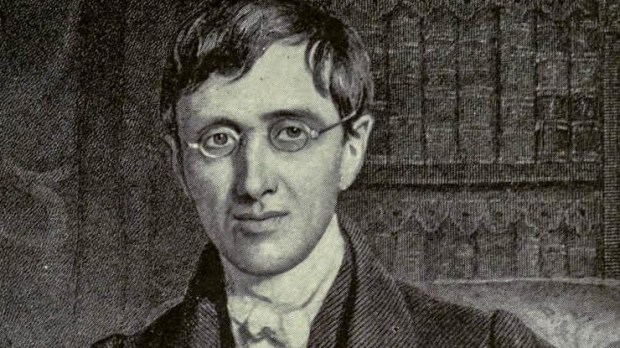Blessed John Henry Newman recognized the richness of Christmas and noted in particular two principal lessons that we should learn from the feast.
He wrote in a sermon, “There are two principal lessons which we are taught on the great Festival which we this day celebrate, lowliness and joy … So that we have on the Feast of the Nativity these two lessons—instead of anxiety within and despondence without, instead of a weary search after great things—to be cheerful and joyful; and, again, to be so in the midst of those obscure and ordinary circumstances of life which the world passes over and thinks scorn of.”
Newman goes on to explain these two lessons in light of a passage from Luke where the angels bring “good tidings of great joy” to the lowly shepherds.
Why should the heavenly hosts appear to these shepherds? What was it in them which attracted the attention of the Angels and the Lord of Angels? Were these shepherds learned, distinguished, or powerful? Were they especially known for piety and gifts? Nothing is said to make us think so. Faith, we may safely say, they had, or some of them, for to him that hath more shall be given; but there is nothing to show that they were holier and more enlightened than other good men of the time, who waited for the consolation of Israel. Nay, there is no reason to suppose that they were better than the common run of men in their circumstances, simple, and fearing God, but without any great advances in piety, or any very formed habits of religion. Why then were they chosen? For their poverty’s sake and obscurity. Almighty God looks with a sort of especial love, or (as we may term it) affection, upon the lowly … To men so circumstanced the Angel appeared, to open their minds, and to teach them not to be downcast and in bondage because they were low in the world. He appeared as if to show them that God had chosen the poor in this world to be heirs of His kingdom, and so to do honor to their lot. “Fear not,” he said, “for behold I bring you good tidings of great joy, which shall be to all people. For unto you is born this day in the city of David a Savior, which is Christ the Lord.”

Read more:
Chicago miracle credited to Cardinal Newman’s intercession
This lesson of lowliness works in tandem with the words of Jesus, “Blessed are the poor in spirit, for theirs is the kingdom of heaven” (Matthew 5:3).
God chose not to come as a rich king, riding triumphantly into Jerusalem, but as a poor man, born in an obscure place with no pomp and circumstance to accompany him. He is a God of the poor and lowly, choosing to raise up those who have fallen.
The second lesson is that of joy, as Newman relates.
“Fear not,” said the Angel, “for behold I bring you good tidings of great joy, which shall be to all people. For unto you is born this day in the city of David a Savior, which is Christ the Lord.” And then, when he had finished his announcement, “suddenly there was with the Angel a multitude of the heavenly host, praising God and saying, Glory to God in the highest, and on earth peace, good will towards men.” Such were the words which the blessed Spirits who minister to Christ and His Saints, spoke on that gracious night to the shepherds, to rouse them out of their cold and famished mood into great joy; to teach them that they were objects of God’s love as much as the greatest of men on earth; nay more so, for to them first He had imparted the news of what that night was happening. His Son was then born into the world. Such events are told to friends and intimates, to those whom we love, to those who will sympathize with us, not to strangers. How could Almighty God be more gracious, and show His favor more impressively to the lowly and the friendless, than by hastening (if I may use the term) to confide the great, the joyful secret to the shepherds keeping watch over their sheep by night?
Christmas is a day of great joy, one in which the poor and lowly of the world are lifted up and become heirs of the Kingdom of Heaven. No matter our social status in the world, God loves us and calls us back to himself. This is the great joy of Christmas, which all the world can partake in.

Read more:
How to have a fruitful Advent, according to St. John Paul II

Read more:
Why St. John Chrysostom loved the feast of Christmas

